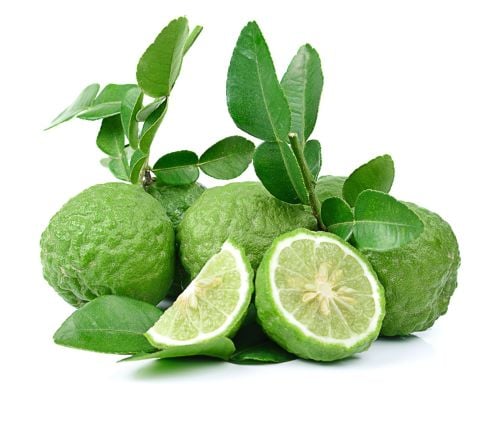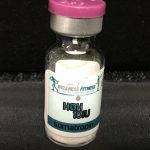Bergamot, or Citrus Bergamia, is the fruit of a small citrus tree that is grown in the areas of the Mediterranean, with most grown in Southern Italy. Bergamot’s pleasantly citrus-smelling essential oil, flavors Earl Grey tea. Herbalists recommend bergamot as a treatment for colic, and it may offer certain health benefits.
Some people treat a skin condition called psoriasis – a long-term (chronic) skin problem that causes skin cells to grow too quickly, resulting in thick, white, silvery or red patches of skin. People with psoriasis apply bergamot oil directly to the skin, and then shine a long-wave ultraviolet (UV) light on the affected area.
Bergamot oil is sometimes inhaled (used as aromatherapy) to reduce anxiety during radiation treatment.
In foods, bergamot oil is widely used as a citrus flavoring agent, especially in gelatins and puddings.

Citrus Bergamot fruit
In manufacturing, bergamot oil is used in perfumes, creams, lotions, soaps, and suntan oils.
Let’s find out how Citrus Bergamot actually works, and how it can help improve your overall health and lifestyle.
BERGAMOT CAN HELP LOWER BLOOD SUGAR AND CHOLESTEROL
According to a study published in the April 2011 issue of the journal “Fitoterapia,” bergamot helps lower blood sugar and cholesterol levels. Participants with either elevated cholesterol levels – or a combination of high cholesterol and high blood sugar – consumed an extract of bergamot polyphenol antioxidants daily, for 30 days.
For the study of 237 men and women, the researchers divided the group into thirds: 69 people received 500 mg daily of bergamot, 70 subjects received 1,000 mg of bergamot, and 66 subjects received a placebo for 30 days.
Results showed lower levels of triglycerides and low-density lipoprotein (LDL), and higher levels of high-density lipoprotein (HDL), in the bergamot-supplemented group, compared to a control group.
The bergamot extract also significantly lowered blood sugar levels and promoted blood vessel dilation – leading researchers to conclude that bergamot shows promise as a natural means for preventing and managing heart disease and diabetes.
BLOOD VESSEL FUNCTION
Bergamot might protect your heart by improving vessel function, according to a study published in the January 2013 “Journal of Cardiovascular Pharmacology.” In the tissue culture study, bergamot essential oil decreased the flow of calcium – the chemical messenger that promotes muscle contraction – into muscles and the linings of arteries.
The resultant effects – including blood vessel dilation, lower blood pressure and improved blood flow – may help prevent arterial plaque formation, hypertension and other conditions associated with heart disease, noted researchers.
HOW DOES BERGAMOT WORK?
Citrus bergamot works by inhibiting the HMG-CoA enzyme, which helps reduce LDL cholesterol in the bloodstream. Citrus bergamot also enhances fecal excretion of cholesterol. Plus, the antioxidants in this powerful extract support healthy blood vessels by supporting the endothelial lining of the blood vessels.
Citrus bergamot has also shown great promise in antiaging medicine for its blood sugar supporting abilities.
THE STATIN SIDE EFFECTS
Statins, a widely used family of cholesterol-lowering drugs, can have significant side effects – including muscle pain and weakness. In contrast, heartburn was the only side effect noted in the initial bergamot studies. While it could eventually be recommended as a complement to statins – with the potential for a lower statin dose – larger scale studies are necessary to establish the supplement’s safety. Bergamot extract must be handled with special care, as exposure to direct sunlight can render the extract toxic. As with any supplement, it is best to discuss with a physician before using them.
“I would tell a patient the caveat is, if you want to try it, be aware that we don’t really know its side effects,” says David Frid, MD, a cardiologist with Cleveland Clinic’s Section of Preventive Cardiology.
Dr. Frid also pointed out that statins have documented health outcome improvements, such as reducing heart attacks, while bergamot has not yet been reviewed for ultimate heart health outcomes.
HOW TO OBTAIN THE BENEFITS OF BERGAMOT
According to Universityhealthnews.com, follow the criteria below to allow your body to get the most out of this essential oil.
For stress and anxiety: To get the anti-anxiety benefit of bergamot essential oil, you have many aromatherapy options. But first, you must make sure you purchase a 100 percent pure essential oil, and not s synthetic “fragrance.” You then need a way to get the aroma chemicals into the air, so you can breathe them in. One way to accomplish this, is by purchasing an aromatherapy diffuser. Inhalation by diffusion is one of the most common applications of essential oils utilized in studies. Another simple option is to put a couple of drops of the essential oil in a large bowl of hot water, and then lean over the bowl to inhale the steam.
For cholesterol and blood sugar: To achieve the benefits of bergamot extract for high cholesterol, triglycerides, or blood sugar, look for capsules or tablets at your local health food store that contain a standardized bergamot extract, such as Bergamonte Bergamot Polyphenolic Extract. Now Foods, for example, and Jarrow Formulas both manufacture supplements using this extract. Take 500 mg twice a day. Like all therapies for cardiovascular and metabolic health, you’ll get the best results with bergamot if you utilize it along with other natural and lifestyle therapies.







